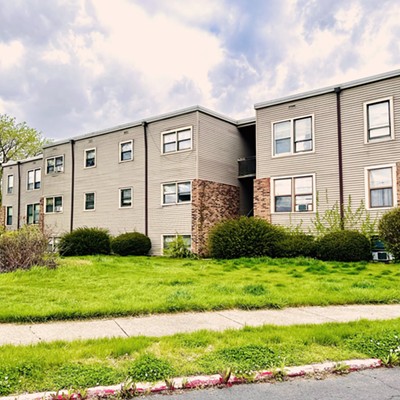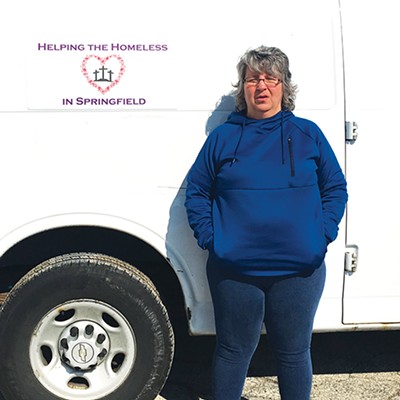Many Sangamon County residents struggle with their mental health, see race as a barrier to career success and distrust police. Those are among the findings of a University of Illinois Springfield (UIS) citizen survey. UIS conducts the survey on local quality of life every two years. The most recent results were announced in late September.
The Sangamon County Citizen Survey heard from more than 700 Sangamon County residents this time. Results showed that the fewest respondents since at least 2013 believe Sangamon County is "heading in the right direction," with 50% saying they believed it was. While the results didn't differ much between respondents of different races or sexes, there was a split between parents and nonparents: 53% of nonparents say Sangamon County is headed in the right direction vs. 40% of parents.
Kenzie Anderson, president of the Junior League of Springfield, said parents offer a certain perspective. "If kids are the future of our community, what are we doing to make that positive impact for them?"
The survey also found a sharp increase in the number – 56% within the past month – of people who report having had a bad mental health day. The number was 18% in 2013, and besides a slight decline in 2015, has steadily increased in each successive survey.
The COVID-19 pandemic has made matters worse, and is occurring at the same time as providers of mental health care are experiencing staffing shortages, said Diana Knaebe, president of Memorial Behavioral Health.
"I think since the beginning of COVID, we've seen everything from folks who were concerned about COVID itself, about being isolated, about all of the additional demands, people whose financial situations were impacted due to loss of a job or something along those lines," Knaebe said. Knaebe added, in a more positive light, stigma around mental health may be subsiding.
The survey also found a stark divide between men and women when it came to mental health, with 63% of women saying they had experienced a day of poor mental health compared to 50% of men. And while 45% of respondents said they had a day of poor physical health, the split was pronounced between those who earn more than $100,000 – just 33% – and those who earned $30,000 or less – 60%.
An overwhelming majority – 70% – of respondents said they believed racism could hinder the career of a person of color. Dominic Watson, president of the Springfield Black Chamber of Commerce, said the sentiment is unsurprising.
"Oftentimes, from a Black-community perspective, we are motivated to become entrepreneurs because we have limited alternatives to growth from a career standpoint. But once we become an entrepreneur, we face lack of access to capital or lack of being taken seriously," Watson said. "Even as an organization that serves people of color, we see barriers ourselves to funding."
Watson said after last year's civil rights uprising, more people appear to be aware of the racial equity work that needs done. The survey's results found hardly a gap between whether white and nonwhite respondents said they thought race was a career barrier.
"I think when America slowed down during COVID and everyone was working from the confines of their home, and then the death of George Floyd happened, people started to think about the marches, the challenges of access to health care, the disproportionate deaths of minorities," Watson said. "Those who were compelled to get involved in a more concentrated way did so, and oftentimes dollars came with that."
Springfield Black Lives Matter president Sunshine Clemons said the survey results should be a wake-up call that discrimination is happening in Springfield. Another significant change over recent years reflected in the results was a decline in respondents who said they trust local police. Of respondents, 54% reported they have a "great deal" of trust in police. That number has been on the decline since at least 2013, when 68% said yes.
"I think trust in police in general is declining nationwide because we don't see a whole lot of improvement," Clemons said. "We are constantly seeing police mistreating people, especially communities of color. Corrective actions are so very few and far between."
There has also been a significant increase in the last four years of those who say they have thought of moving out of Sangamon County, with 36% of respondents saying they were thinking about it in 2017 and 58% saying so in the 2021 survey, though only 19% of respondents in 2021 reported applying for jobs outside the county. The most-cited reasons for pondering leaving included state and local taxes, government and politics.
Watson said Springfield needs to put more effort into convincing people to stay.
"I think we're all in agreement that the city has work to do in order to continue to grow the number of individuals that they're retaining," he said. "Oftentimes that is due to a lack of forward thinking and execution."
Kenneth Lowe is a staff writer for Illinois Times. Contact him at [email protected].

















